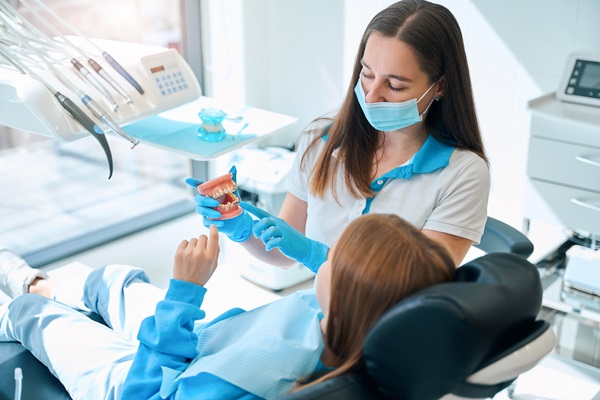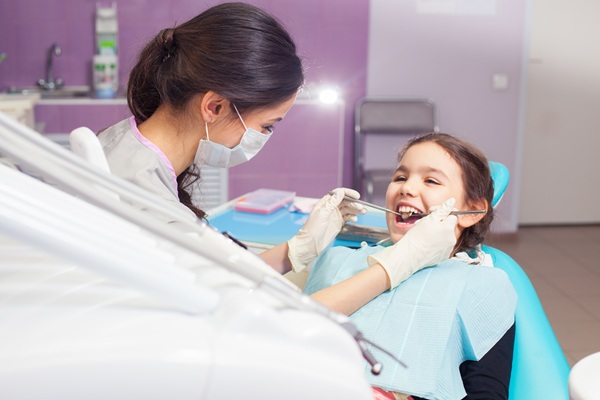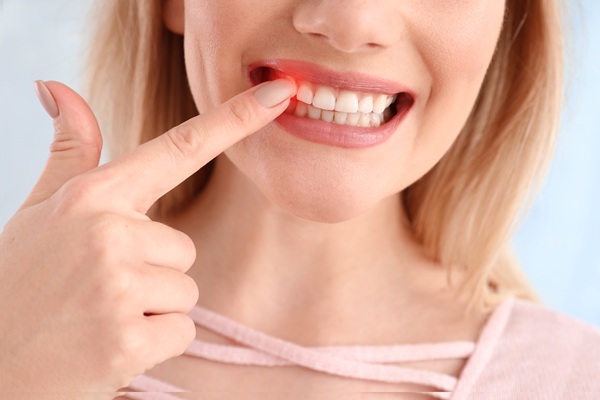Preventive Dentistry: Choosing the Right Toothbrush

Using the right toothbrush is part of preventive dentistry. Your dental health is more secure if you have the right tool for cleaning your teeth and gums. An effective toothbrush can help you reach your dental health goals. If you want to know the basics of choosing the right toothbrush as part of preventive dentistry, here are the details.
The bristles
Toothbrushes can have hard, medium, and soft bristles. The tips may be unrounded or rounded. Many people think of toothbrushes with hard bristles as the most effective cleaners. In truth, these bristles can clean too hard. Handling this type of toothbrush with excessive pressure can damage the teeth. These toothbrushes can also recede and irritate the gums.
The goal of preventive dentistry and the humble toothbrush is to remove plaque. Even so, brushing must not take much force to get the job done. Most people use toothbrushes with soft, rounded bristles instead. Studies show how soft-bristled toothbrushes are the most optimal at cleaning teeth. The user must take a more relaxed route in using this type of toothbrush.
The shape and size of the toothbrush
Preventive dentistry understands the difference in each person’s mouth. The toothbrush must fit well inside the mouth. A toothbrush will not reach the back of the mouth if its head is too big. The back of the mouth and the back teeth are the favorite hiding places of bacteria.
Many individuals choose a toothbrush with a half-inch wide and one-inch long head. This is easy to maneuver and comfortable. Choosing this type of brush head with a good handle is ideal. The handle should not slip and slide in the hand.
The mechanism
Manual and electric toothbrushes can both clean teeth well. Preventive dentistry does not favor one over the other. Yet, some people choose electric toothbrushes because these tools are easy to use. An advantage of these toothbrushes is the two-minute timer. Using electric toothbrushes ensures thorough cleaning.
Some people are not comfortable with how an electric toothbrush feels inside the mouth. Others are too ticklish. Choosing which toothbrush works for the individual is a personal decision. Manual or electric, it is up to the user. Preventive dentistry works with the help of either type of toothbrush.
Replacing the toothbrush
Preventive dentistry professionals recommend replacing a toothbrush every three to four months. Bristles need to be upright to clean well. Brush heads need replacing once the bristles are out of shape or worn. These bristles may damage teeth if the brush head does not have a replacement soon. Replacing a toothbrush after an illness is ideal. This will make sure the person will not get sick from the same virus or bacteria again.
Preventive dentistry becomes efficient and effective with the right toothbrush
Choosing the correct type of toothbrush for your needs is important in preventive dentistry. You can perform preventive dentistry practices at home with a cleaning tool you are comfortable with. Flossing and using an effective toothbrush will help you reach your dental goals. Regular appointments with your dentist will reinforce your preventive dentistry practices.
Are you considering having a preventive dentistry procedure in the Bakersfield area? Get more information at https://www.bakersfielddentistry.net.
Check out what others are saying about our dental services on Yelp: Preventive Dentistry in Bakersfield, CA.
Recent Posts
Preventive dentistry can protect your teeth and gums. Its main goal is to keep dental problems away. It also aims to detect any oral issue early to prevent it from worsening. Preventive dentistry clinics have different ways to help keep your dental health in top condition. If you want to know how preventive dentistry can…
Preventative dentistry is a branch that focuses primarily on keeping dental issues at bay. Preventing dental issues is cheaper than treating them, and you do not have to deal with the pain and discomfort that comes with oral problems when you stop them from developing in the first place.Preventive dentistry starts with educating patients about…
Curious about the importance of routine dental care? When it comes time for an annual checkup, the process can be quite troublesome and alarming for some people. Allowing for early detection by going to routine dental care checkups will keep your oral health on track. A checkup will show if a cavity needs attention, and…
A professional teeth cleaning from a general dentist is one of the most important aspects of maintaining good oral health. Many individuals are under the impression that oral hygiene at home is enough to maintain good oral health, but that is a common misconception. Visiting a general dentist on a regular basis is necessary.Outlined below…


